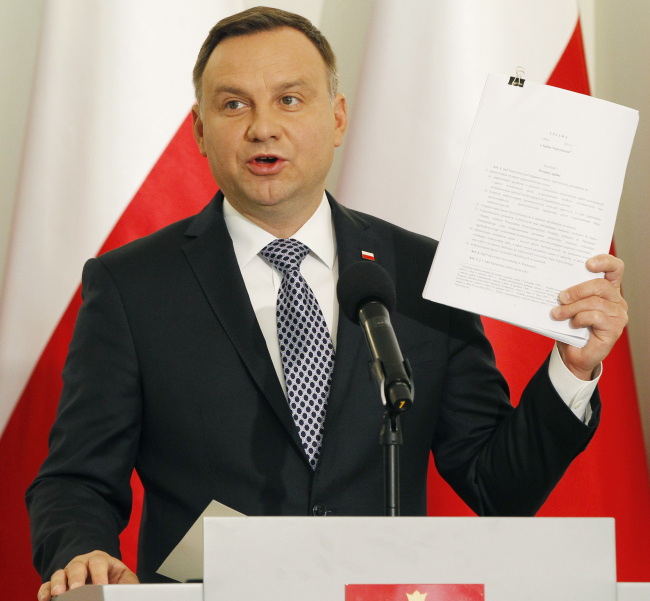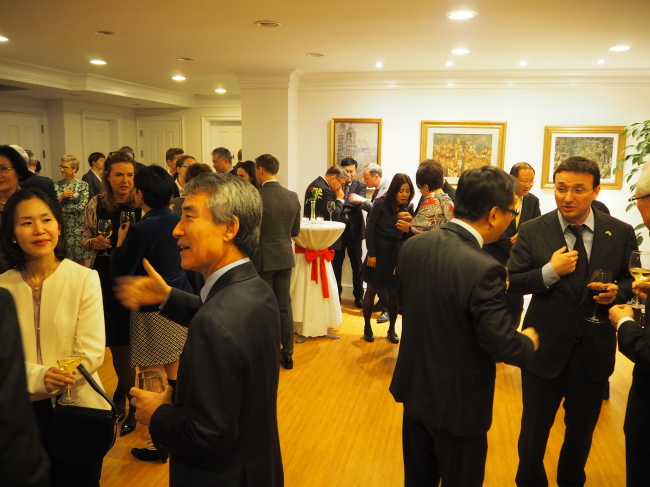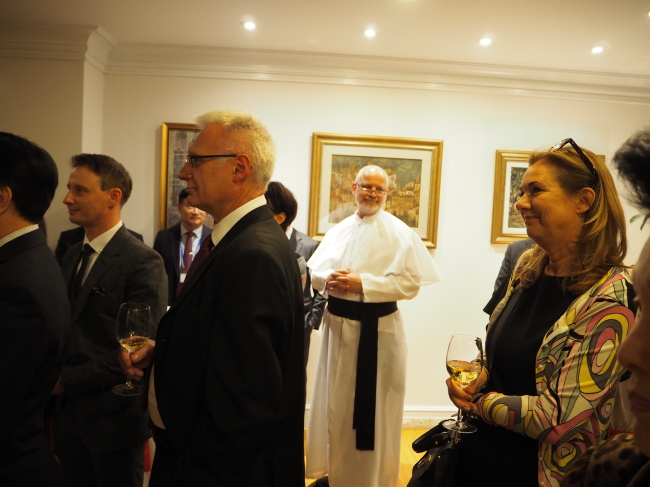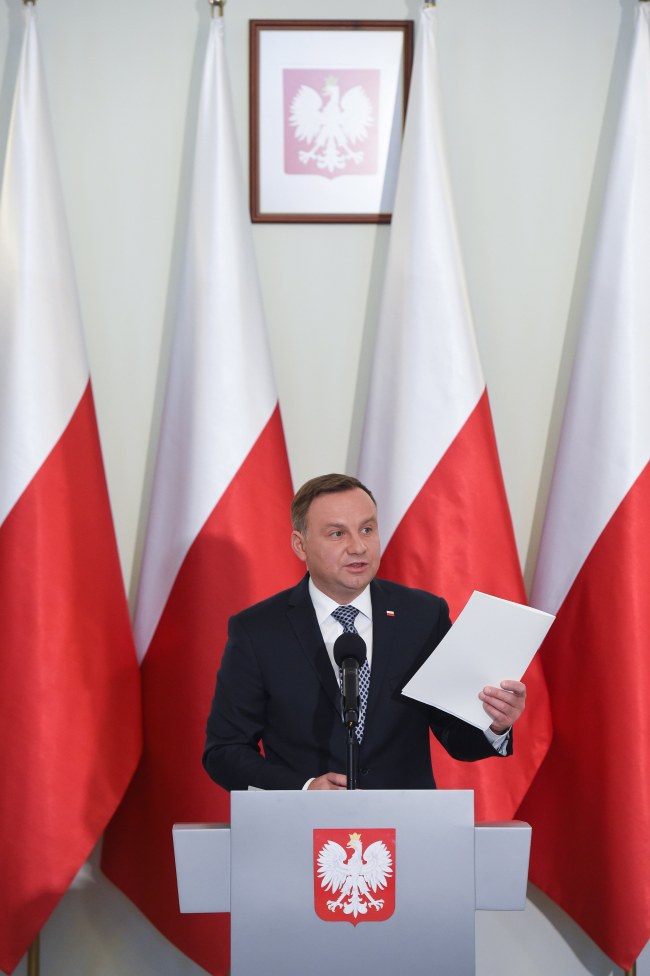‘Poland lends help on denuclearization, marketization’
“Our government conveys a very clear message to the world, urging all actors to respect international laws,” the journalist-turned-official said, adding the issue applies not only to the Korean peninsula but eastern Ukraine near Poland.
By Joel LeePublished : Oct. 23, 2017 - 20:40

As a country that successfully transformed from communism to capitalism and democracy, Poland stands incontrovertibly on the side of South Korea in thwarting North Korea’s nuclear and missile program, and urges Pyongyang to respect international laws and principles, according to Poland’s Deputy Foreign Minister Marek Magierowski.
In an interview with The Korea Herald at the Polish ambassador’s residence in Seoul last week, Magierowski stressed that “Seoul can count on our help, solidarity and support,” as the Central European nation will be a nonpermanent member of the United Nations Security Council starting next January for two years.
“We are fully aware that the North Korean nuclear program will be one of the most important issues debated at the UNSC,” the undersecretary of state for economic diplomacy, America policy and Asia policy in the government of Polish President Andrzej Duda highlighted.
“I am visiting Korea at a very tense time in international relations. The geopolitical circumstances of the Korean Peninsula is complicated. Poland has always sided with South Korea on the issue of the North Korean nuclear and missile program. We have condemned regularly all nuclear and missile tests and the threatening rhetoric by the North Korean regime very straightforwardly.”
In an interview with The Korea Herald at the Polish ambassador’s residence in Seoul last week, Magierowski stressed that “Seoul can count on our help, solidarity and support,” as the Central European nation will be a nonpermanent member of the United Nations Security Council starting next January for two years.
“We are fully aware that the North Korean nuclear program will be one of the most important issues debated at the UNSC,” the undersecretary of state for economic diplomacy, America policy and Asia policy in the government of Polish President Andrzej Duda highlighted.
“I am visiting Korea at a very tense time in international relations. The geopolitical circumstances of the Korean Peninsula is complicated. Poland has always sided with South Korea on the issue of the North Korean nuclear and missile program. We have condemned regularly all nuclear and missile tests and the threatening rhetoric by the North Korean regime very straightforwardly.”

Poland has had rocky foreign relations with Russia in recent decades, exacerbated by the situations in eastern Ukraine, where Russian troops have propped up separatist rebels and movements, and in Crimea, which Moscow annexed into its territory in late 2014.
“Our government conveys a very clear message to the world, urging all actors to respect international laws,” the journalist-turned-official said, adding the issue applies not only to the Korean peninsula but eastern Ukraine near Poland.
“It is absolutely clear that this is the basic starting point for any diplomatic negotiations. If you don’t respect international laws, it’s impossible to start any kind of negotiations for credible implementation of the agreement.”
Magierowski worked as a journalist for over 20 years at Poland’s leading newspapers and magazines. He left journalism to work at the Chancellery of the President of the Republic of Poland as an expert on public diplomacy in October, 2015. He was appointed as head of the press office of the chancellery two months later, and resigned in May 2017.

Poland has implemented all North Korea-related UNSC sanctions, including resolutions 2371 and 2375 adopted on Aug. 5 and Sept. 11, respectively, which restrict the purchase of North Korea’s main export items -- coal, iron, lead and seafood -- and cut off over 55 percent of refined petroleum products flowing into the cash-strapped nation.
“As a nonpermanent member of the UNSC, we will lay out our own agenda and promote issues of importance to our national interests,” he said. “We want the situation in eastern Ukraine to be normalized and stabilized, because it significantly impacts our own territorial sovereignty and security interests.”
As one of few European countries with an embassy in Pyongyang, which enables communications with the communist government, alongside being a member of the Neutral Nations Supervisory Commission with Switzerland and Sweden, Poland can provide help to South Korea in dealing with its unruly northern neighbor, he highlighted. Magierowski had political consultations with Korean diplomats at the Ministry of Foreign Affairs during his visit to Seoul.
On the bilateral economic cooperation, Magierowski pointed out that Korea has become the biggest Asian investor in Poland, with foreign direct investments larger than those of China and Japan.
Poland and Korea -- strategic partners since 2013 -- recorded a trade turnover of more than $3.5 billion last year, and Polish exports grew more than 16 percent during the same period to $500 million.

“Both Korea and Japan have learned how to conduct business with countries of the European Union, which is carried out through a legal framework and procedures,” noted the undersecretary.
He added that Poland’s transformation from communism to capitalism has been a “remarkable success story.” Polish economists and policymakers have provided assistance to former communist governments as they made their transitions to democracy and free market economy, drawing lessons from Poland along the way.
“Poland has traditionally been a conservative nation and society. This doesn’t mean that we are nationalist or ultraconservative,” Magierowski said in response to accusations of “authoritarian” and “nationalist” policies created or enforced by the Duda administration.
On the current government’s relations with the EU, he said, “We just want to be more assertive in our foreign policy, and don’t wholly accept proposals made by the European Commissions and Brussels elites on certain issues, chiefly immigration.”

Poland understands the EU as an “organization of equal partners,” but the notion has been neglected over the last few years by some countries trying to wield more influence, he claimed.
“We have always been an advocate of ‘nation-states’ within the European Union. We want our national parliament to assume greater control over our national policies as well as European politics. We don’t want to live in a federal Europe or federal European Union. To us this is an absurd idea.”
Describing the European integration as a “conservative Christian project,” he also emphasized that the Polish society is “profoundly pro-European,” with public polls across the country indicating overwhelming support for the EU, at times more than 80 percent.
“There is no political party in Poland that advocates our exit from the EU, unlike in Britain and France,” he said. “That would be suicidal for us.”
By Joel Lee (joel@heraldcorp.com)


















![[Today’s K-pop] BTS pop-up event to come to Seoul](http://res.heraldm.com/phpwas/restmb_idxmake.php?idx=642&simg=/content/image/2024/04/17/20240417050734_0.jpg&u=)